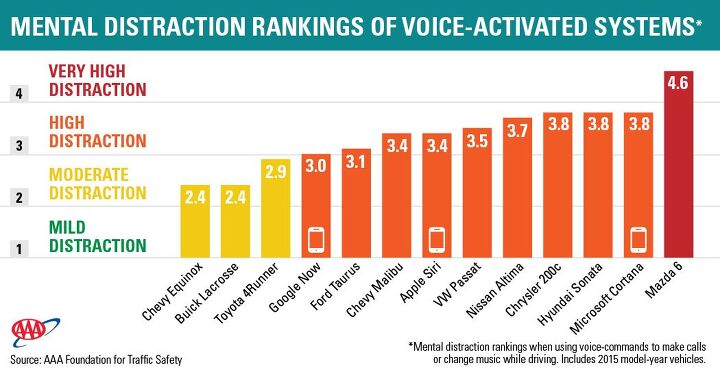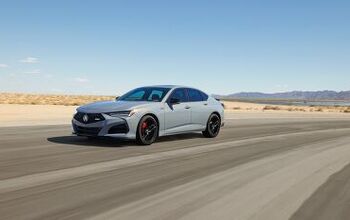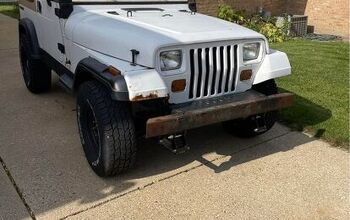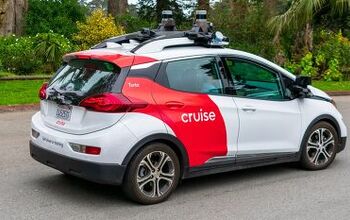Study: Distracted Drivers Stay Distracted, Even After They've Sent Super Clever Text

Drivers may take nearly 30 seconds to regain their focus back on the road after using a car’s infotainment or hands-free smartphone systems, researchers announced Wednesday.
The two studies, which were conducted by the University of Utah ( Go Utes!) for the AAA Foundation for Traffic Safety, concluded that even modern assist programs could dangerously distract drivers for up to 27 seconds after they’re done using them. Researchers noted that vehicles traveled more than 300 yards for 27 seconds at 25 mph.
“Just because these systems are in the car doesn’t mean it’s a good idea to use them while you are driving,” University of Utah psychology professor David Strayer, senior author of the two new studies, said in a statement. “They are very distracting, very error prone and very frustrating to use. Far too many people are dying because of distraction on the roadway, and putting another source of distraction at the fingertips of drivers is not a good idea. It’s better not to use them when you are driving.”
Researchers found that Chevrolet’s MyLink (Equinox), Buick’s IntelliLink (Lacrosse) and Toyota’s Entune (4Runner) were the least distracting models among the systems tested, although all three still ranked as “moderately distracting” to drivers. Researchers said the Sync MyFord Touch (Taurus), Volkswagen Car-Net (Passat) Nissan Connect (Altima), Chrysler Uconnect (200C) and Hyundai Blue Link (Sonata) all ranked “highly distracting.” Mazda’s Connect (Mazda6) rated as “very highly distracting.”
Similar systems in different cars, such as Chevrolet’s MyLink ranked differently, which researchers said could be attributed to varying road noise from the cars.
Researchers also found that voice-activated systems from Google, Apple and Microsoft all rated as “highly distracting” when given voice commands for navigation. Microsoft’s Cortana rated “very highly distracting” when trying to send a text.
“The voice-command technology isn’t ready,” Joel Cooper, a University of Utah research assistant professor of psychology and a co-author of the new studies, said in a statement. “It’s in the cars and is billed as a safe alternative to manual interactions with your car, but the voice systems simply don’t work well enough.”
Researchers tested the systems with 257 drivers for the infotainment and 65 people for the smartphone study. Participants were asked to respond when an LED light flashed and researchers measured drivers’ attentions to how quickly they responded to the lights.
Or you could just give up trying to Facebook in the car.
“These systems are often very difficult to use, especially if you’re just trying to entertain yourself. … The vast majority of people we tested ended up being frustrated by the complexity and error-prone nature of the systems,” Strayer said.
(H/T to David)

More by Aaron Cole
Latest Car Reviews
Read moreLatest Product Reviews
Read moreRecent Comments
- 1995 SC I will say that year 29 has been a little spendy on my car (Motor Mounts, Injectors and a Supercharger Service since it had to come off for the injectors, ABS Pump and the tool to cycle the valves to bleed the system, Front Calipers, rear pinion seal, transmission service with a new pan that has a drain, a gaggle of capacitors to fix the ride control module and a replacement amplifier for the stereo. Still needs an exhaust manifold gasket. The front end got serviced in year 28. On the plus side blank cassettes are increasingly easy to find so I have a solid collection of 90 minute playlists.
- MaintenanceCosts My own experiences with, well, maintenance costs:Chevy Bolt, ownership from new to 4.5 years, ~$400*Toyota Highlander Hybrid, ownership from 3.5 to 8 years, ~$2400BMW 335i Convertible, ownership from 11.5 to 13 years, ~$1200Acura Legend, ownership from 20 to 29 years, ~$11,500***Includes a new 12V battery and a set of wiper blades. In fairness, bigger bills for coolant and tire replacement are coming in year 5.**Includes replacement of all rubber parts, rebuild of entire suspension and steering system, and conversion of car to OEM 16" wheel set, among other things
- Jeff Tesla should not be allowed to call its system Full Self-Driving. Very dangerous and misleading.
- Slavuta America, the evil totalitarian police state
- Steve Biro I have news for everybody: I don't blame any of you for worrying about the "gummint" monitoring you... but you should be far more concerned about private industry doing the same thing.


































Comments
Join the conversation
The phone s/he is holding is the one i currently use! Can't say i like it, but if you want Verizon, and don't need data, you are condemned to it.
I see lot's of studies ranking distraction levels and reaction times, but relatively few (if any) correlating distraction level with safety/danger. It's intuitively obvious, so I don't trust it unless it's proven. There may be mitigating factors like not engaging in risk adding maneuvers as often while knowingly distracted. How does not jockeying for position and changing lanes as often balance out the distraction level? Is it measured by anyone, or is it too issue money neutral to be funded?